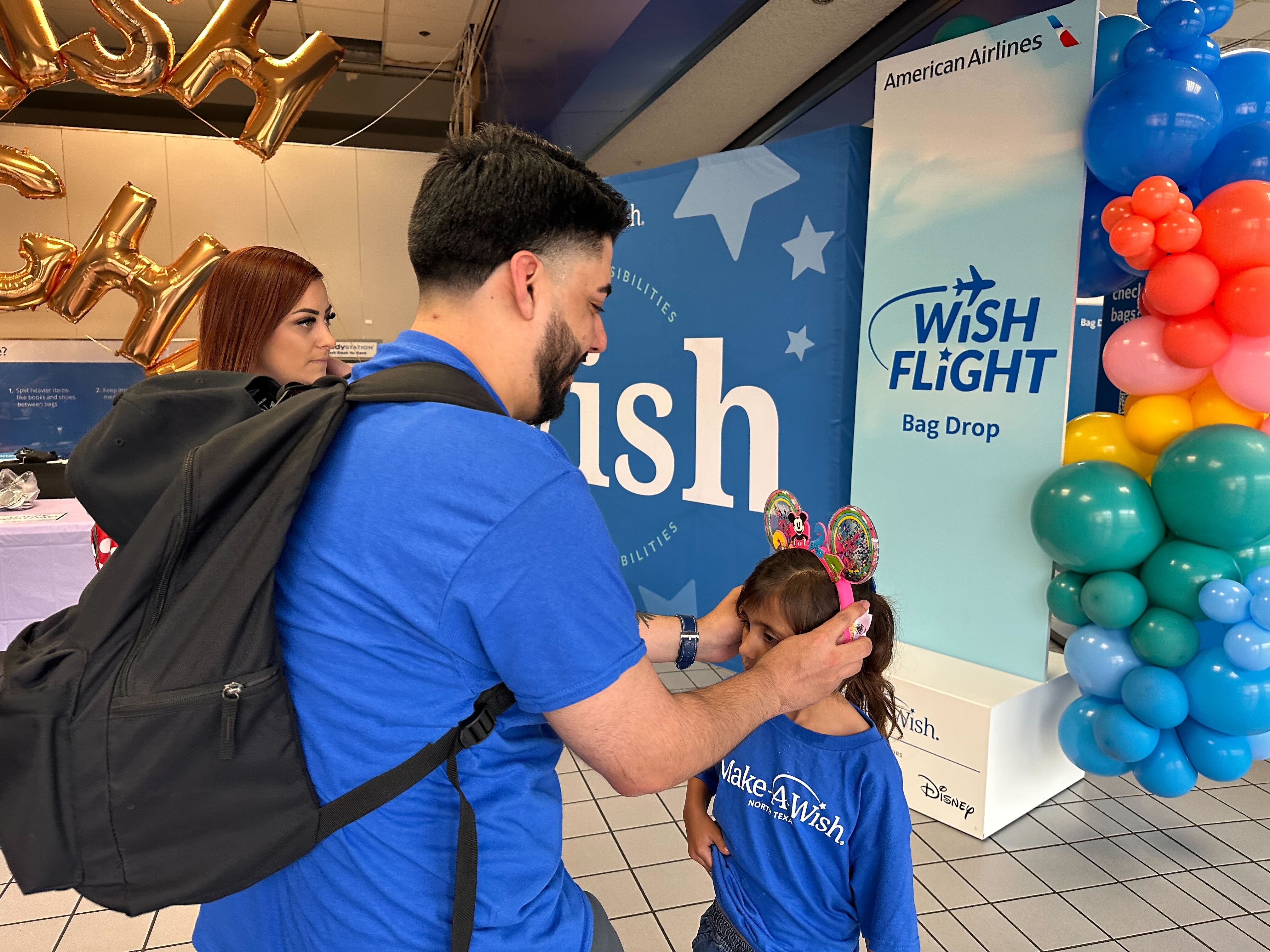Eleven Dallas County cities are preparing for an aerial assault against the mosquito population.
The first plane took off shortly before 10 p.m. for Thursday night's scheduled spraying of an area north of Interstate 30 and east of the Dallas North Tollway that includes University Park, Highland Park, Dallas, Richardson, Garland and part of Mesquite.
The second plane took off shortly after 10 p.m. The planes are expected to be in the air until about 2 a.m. or 3 a.m.
The areas to be sprayed on Friday are still being determined, but they will likely be the cities on the west and northwest side of Dallas County that have opted for aerial spraying, such as Addison, Carrollton, Grand Prairie, Coppell and Farmers Branch.
Dallas County deemed aerial spraying necessary to curb the county's population of mosquitoes carrying West Nile virus. Ten people in Dallas County have died after contracting the virus, and hundreds more have been infected.
Because of the severity of the outbreak, the Texas Health Department is stepping in to oversee the effort and to pay for it.
"This year is totally different from the experience Texas has had in the past," state Health Commissioner Dr. David Lakey said. "If it's nuisance mosquitoes, we ask the city or county to pay part of that. But in the midst of this disease outbreak, it's easier for us to go ahead and do it."
A national spraying company, Clarke Mosquito Control, was set to deploy two to five Beechcraft King Air twin-engine planes late Thursday night for three hours of spraying. One county-wide application costs about $1 million. A second application is possible if the first attempt does not kill enough mosquitoes.
The hot, dry weather across the nation's midsection has created ideal conditions for some species of mosquito. The heat speeds up their life cycle, which accelerates the virus replication process. And during a drought, standing water can quickly turn stagnant when it's not flushed away by rain or runoff.
Cities participating in Dallas County's aerial spraying include Addison, Carrollton, Coppell, Dallas, Farmers Branch, Garland, Grand Prairie, Highland Park, Mesquite, Richardson and University Park.
Cedar Hill, Cockrell Hill, DeSoto, Irving, Lancaster, Rowlett, Sachse and Wylie have decided against aerial spraying.
Local
The latest news from around North Texas.
Concerns About Aerial Spraying
Although commonplace in other major cities, the aerial-spraying efforts are provoking a debate between health officials trying to quell disease risk and people concerned about insecticidal mist drifting down from above.
"It's something new there that has not been used in quite a number of years," said Dr. Roger Nasci, of the CDC, explaining the public's worries. "Anything novel comes with that unknown factor."
Critics have also questioned whether the approach is scientifically proven to reduce West Nile cases. But at least one study in California concluded that the odds of infection are about six times lower in treated areas than those that are untreated.
Opponents say they are concerned about the effects the insecticide could have on people, pets and useful insects such as honeybees and ladybugs.
The chemical released from the planes, synthetic pyrethroid, mimics a naturally occurring substance found in chrysanthemums. The Environmental Protection Agency has said that pyrethroids do not pose a significant risk to wildlife or the environment, though no pesticide is 100 percent safe.
The insecticide's common name is Duet Dual-Action Adulticide. The label says it's toxic to fish and other types of aquatic life, and it contains distilled petroleum.
Residents are advised to take the following precautions: Avoid being outside, close windows and bring pets inside during spraying. If exposed, wash skin and clothing with soap and water. Residents should also rinse homegrown fruits and vegetables with water and cover ornamental fish ponds.
The Dallas Arboretum covered its fish ponds and water foundations to protect the koi that swim in some of the water features. The arboretum used recycled aerial billboards found on Craigslist to cover the ponds.
Businesses, Activities Make Adjustments
NBC 5 checked with a couple of restaurants in Highland Park with patio seating and outdoor bars about what they would do during the aerial spraying.
Patrizio’s closes at 11 p.m. but with spraying starting at 10 p.m., they will not have people on the patio after 10 p.m. However, at nearby Bistro 31, the general manager, Jonathan DellaTorre tells us Thursday is too busy of a night and their outdoor, upstairs bar is too popular to shut it down so they will not make any changes with the spraying going on.
A restaurant in Oak Lawn, Thiariffic, contacted NBC 5 to tell us they’re closing four hours early -- 6 p.m instead of 10 p.m. -- to keep their employees and patrons from being exposed to the insecticide coming from above.
The North Texas Panthers Youth Football program also made an adjustment. When the plan was for the spraying to begin at 8:30, Carlos Jones shortened and moved up practice so it would end at 7:15 p.m. It usually goes until 8:30 p.m.
“We have a lot of kids with asthma out there and we don’t want them infected by that,” Jones said. “We just have to make sure we watch the news so we can stay on top of things. If they’re spraying, we don’t need to be out on the field.”
Numbers Continue to Climb
Human cases of West Nile virus continue to climb in the North Texas area, with more than 540 cases so far. Dallas County reported 230 cases as of Aug. 16.
The state of Texas confirmed the 19th statewide death after a patient contracted the virus on Thursday. Fourteen of those deaths have been in the North Texas region, including 10 in Dallas County.
Most people infected with West Nile virus won't get sick, but about one in 150 people will develop the severe form of the illness. Symptoms include headache, high fever, neck stiffness, disorientation, coma, tremors, convulsions, muscle weakness and paralysis.
Complete totals of human cases in North Texas can be found at this link: West Nile County by County.
The city of Dallas has put up a website with many answers to questions about aerial spraying: West Nile Aerial Spraying.
To date, only cities in Dallas County have announced using aerial spraying. View all participating and non-participating cities in Dallas County here.
Many North Texas cities are also using ground spraying to control the mosquito population. View the list of ground spraying cities here.
NBC 5's Greg Janda, Mark Schnyder, Frank Heinz and Amanda Guerra and The Associated Press' Sarah Kuta contributed to this report.
Complete ongoing coverage of the outbreak of West Nile virus in North Texas is available in this Special Section. Visit the section to find answers to frequently asked questions, schedules and areas for spraying, and the latest information about the spread of the disease.



